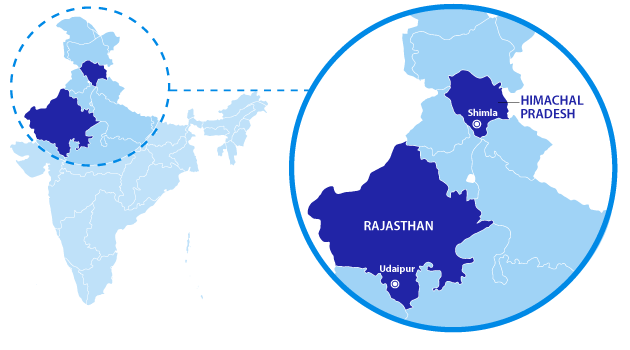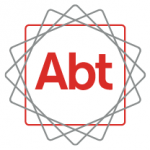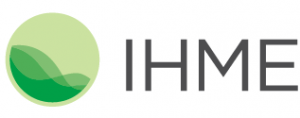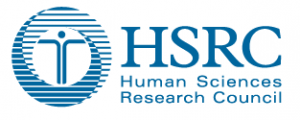About the HealthRise India Program
THE NCD CHALLENGE IN INDIA
NCDs account for approximately 60% of total deaths in India, according to the World Health Organization (WHO). More than 21% of the Indian population has raised blood pressure and 9.1% has diabetes, and the prevalence of these diseases is growing. However, a significant portion of these individuals are not aware of their condition. Meanwhile, those who have been diagnosed with these conditions face high costs for care and treatment, with many low income households either falling further into impoverishment due to catastrophic spending or forgoing care altogether. The WHO estimates that Indian households spend up to 25% of their annual income on caring for a family member with diabetes.
HEALTHRISE INDIA PROGRAM OVERVIEW
To address the growing burden of CVD and diabetes in India, HealthRise will support two, three-year community-based demonstration projects specifically designed to expand access to care and management of CVD (particularly hypertension) and/or diabetes for underserved populations. HealthRise India will have an explicit focus in two districts: Udaipur in Rajasthan and Shimla in Himachal Pradesh. HealthRise Partner, IHME, conducted a Review of Literature (ROL) and a comprehensive needs assessment in Udaipur and Shimla districts to identify supply-side and demand-side barriers across the Continuum of Care, identifying access-related barriers, service delivery gaps, community requirements, and opportunities within the health systems. In addition to the three-year grants for demonstration projects, HealthRise will support short-term strategic opportunities through one-year opportunity grants that fall outside the grant cycle but enable innovative solutions to expanding access to CVD and diabetes care for the underserved in India. HealthRise has used the findings from the ROL and needs assessment to engage more than 150 key stakeholders from national, state, and local government, the private sector and civil society to gain insights and recommendations about the design of interventions. A Country Advisory Committee (CAC) has been established comprising of a multi-stakeholder expert group to guide the India project and identify opportunities to integrate and build partnerships, acting as a catalyst to foster local ownership. The CAC also will work towards influencing policy and advocacy that allows scalability and sustainability of successful project elements.
Map highlighting target districts in India

HEALTHRISE INDIA DEMONSTRATION PROJECTS
Demonstration Project Grants
HealthRise India announced a request for letters of interest (LOI) in November 2015 that invited local organizations to outline their organizational capacity and experience in community-based health programming. In May 2015, the program released a request for applications (RFA) inviting the finalists from the LOI process to submit applications for creative demonstration programs aimed at improving detection, management and control of cardiovascular disease, particularly hypertension, and diabetes among underserved populations in Udaipur and Shimla. The awards will cover a three-year implementation period through August 2018.
Current Demonstration Projects
In November 2015, two organizations were selected to implement HealthRise India grantees: the Catholic Health Association of India (CHAI) in Udaipur, Rajasthan and the MAMTA Health Institute for Mother and Child (MAMTA HIMC) in Shimla, Himachal Pradesh. Each grantee will also convene a steering committee of various stakeholders to provide direction and advice throughout the duration of the project. These partnerships are intended to ensure that both frontline health workers/providers and the voice of the people affected are part of the planning, implementation and continuous improvement of the project to better address the individual needs of the selected communities.
ALIGNMENT WITH LOCAL PRIORITIES AND GOVERNMENT
Engaging stakeholders throughout the program is a fundamental building block in achieving the objectives of HealthRise; it is critical to ensuring that the program’s activities remain aligned with local priorities, while also building local ownership of the program and laying the foundation for the sustainability of these efforts. In India, HealthRise has engaged key stakeholders from the national level, the state governments in Rajasthan and Himachal Pradesh, the district governments in Udaipur and Shimla, the private sector, and civil society to gain insights and recommendations about the design of the program.
CONTACT HEALTHRISE INDIA
Country Program Director




